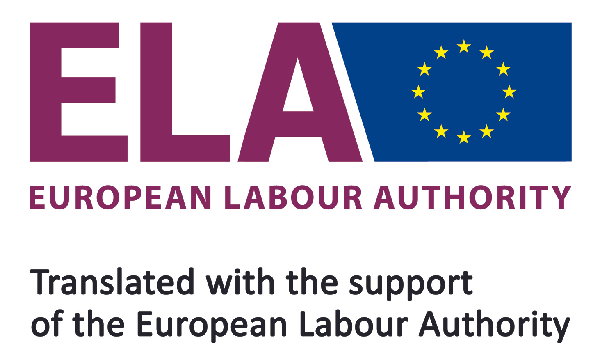Prohibition on the employment of foreign nationals
Depending on the legal nature of the offence, employers who are fined for an offence are prohibited from employing and working with foreigners for one, two or five years from the date the offence becomes final.
1. Some of the most frequent offences that make it illegal for employers to employ foreign nationals.
- An employer who provides workers to a user and has incurred an enforceable fine for the offence of concluding an employment contract with a foreign national who does not have free access to the labour market or consent for employment, self-employment or work, or providing services in the Republic of Slovenia with workers not employed by it, shall be banned for two years from employing foreign nationals.
- An employer who has been fined for allowing a worker to work without concluding an employment contract or for illegally employing a third-country national is banned from employing foreign nationals.
- An employer fined for putting an employee in a position of disadvantage or failing to pay wages is banned from employing foreign nationals for two years.
- An employer who has been convicted in a final ruling of the offence of exploitation through prostitution, enslavement, trafficking in human beings, a violation of the fundamental rights of workers and a violation of rights arising from social insurance is prohibited from employing foreign nationals or engaging them in work for five years.
2. Equally, foreign nationals may be banned for five years from employment, self-employment or work if convicted in a final ruling of submitting falsified evidence.
3. For nationals of Bosnia and Herzegovina or Serbia who wish to renew their permit after three years, this is also possible with employers who are prohibited from employing foreigners, as the permit allows them free access to the labour market.
4. Some of the prohibitions on employing foreign nationals also apply to the renewal of consent to the single permit, i.e. for employers who:
- fail to ensure minimum housing or hygiene standards,
- fail to give notice of termination in writing,
- do not provide allowances for night work, overtime or work on Sundays or public holidays,
- enter into a contract with a worker in breach of the Employment Relationship Act or fail to provide workers with rights in accordance with the law.
Forced labour and labour exploitation
When a person is tricked, sold or forced into a work or services against his or her will in order to be exploited for profit.
Learn more:
Labour Exploitation and Trafficking in Human Beings (en)
Eksploatacija rada i trgovina ljudima (sr)

Thanks for your feedback. It will help us improve our website. Please do not enter any personal data such as your name, surname or e-mail address.